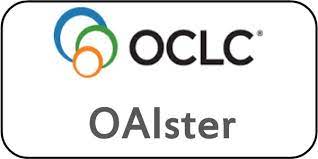Evaluation of Effectiveness of Doxycycline as Empirical Therapy for Treatment in Acute Undifferentiated Febrile Illnesses in Routine Clinical Practice: A Retrospective, EMR-based, Real-world Study
Keywords:
Acute undifferentiated febrile illness, doxycycline, real-world, antimicrobialsAbstract
Background: Tetracyclines, in particular doxycycline, are recommended for the treatment of patients with acute undifferentiated febrile illness (AUFI); however, real-world studies are scarce. Methods: This retrospective, multicenter, observational study reviewed electronic medical records (April 2018 to March 2021) of adult patients (outpatient and inpatient departments [OPD and IPD]) with AUFI, treated with doxycycline monotherapy (doxycycline group) or doxycycline in combination with other antimicrobials (combination therapy group), from 7 tertiary hospitals and clinics in India. Results: Overall, 473 patients were included; 73.8% and 26.2% patients were prescribed doxycycline alone or in combination with other antimicrobials, respectively. Defervescence was achieved in 65.6% and 57.3% patients, respectively at the second (8-14 days) follow-up visit. Clinical cure rate for symptomatic resolution varied between 89.6% and 100% in OPD settings. Time taken from treatment initiation to defervescence was 3.51 ± 3.16 days for the doxycycline group and 3.46 ± 3.07 days for the combination therapy group. Both groups showed improvements in body temperature in OPD settings (84.2% and 84.5%) as well as IPD settings (97.4% and 94.1%). Adverse events in OPD patients in both groups were nausea (7.8% and 8.7%), anorexia (1.6% and 33.0%) and dyspepsia (1.6% and 67.9%). Conclusion: Doxycycline appears to be a promising candidate for treating patients with AUFI due to its demonstrated real-world effectiveness and safety profile.
Downloads
Published
Issue
Section
License
All open access articles published in IJCP are distributed under the terms of the CC BY-NC 4.0 license (Creative Commons Attribution-Non-Commercial 4.0 International Public License). This license permits unrestricted use, distribution, and reproduction of the articles in any medium for non-commercial purposes, provided that: The original authorship is properly and fully attributed. The IJCP is cited as the original place of publication with correct citation details. If an original work is reproduced or disseminated in part or as a derivative work, this must be clearly indicated. No articles are reproduced for commercial use without prior consent from the IJCP. All licensing requests and permissions for commercial use will be managed by the Publisher.










